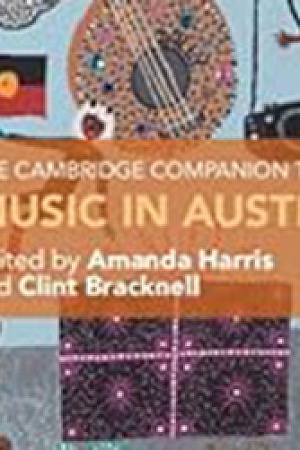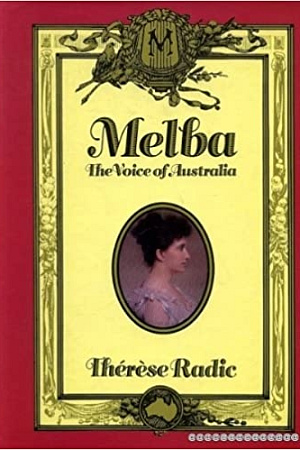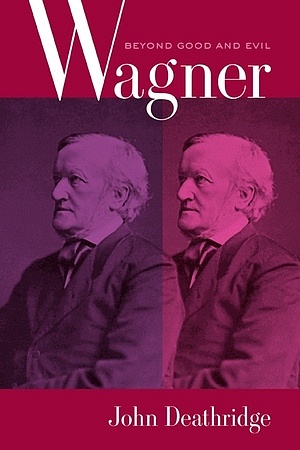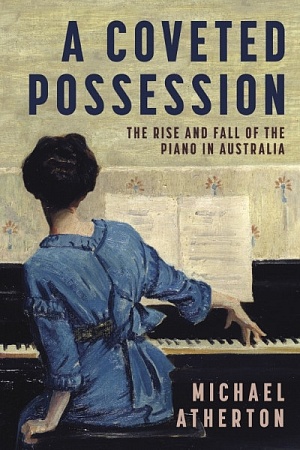Fifty First
Keats and Chapman attended the world’s first and so far, only performance of KarlHeinz Stochasm’s massive composition for several large orchestras, chorus and regimental artillery, the Cantata for the Victims of Eureka. Afterwards, Keats asked Chapman what he thought of the work, and Chapman admitted that he had quite enjoyed some of the choral themes in the last movement. ‘You mean melodies,’ said Keats, who hadn’t liked any of it. ‘Themes’, Chapman insisted. ‘But themes aren’t what they sing!’ cried Keats. ‘They so rarely are’, said Chapman. In all fairness I think it must be said that Macmillan’s have not been treating me at all well lately. Here it is nearly April and I have not yet received a review copy of The New Grove Dictionary of Music and Musicians, which makes me think I have been quite overlooked. Further, though I have no doubt I would make good use of the New Grove at any time, I had most desperate need of it just after Christmas.
Picture me, if you will, sitting quietly at the Foysters’ place on the evening of the 28th, meditating upon peace, good will and the future of man under Reagan, taking care the while not to smoke too many cigarettes at once because it does terrible things to my friends’ wallpaper - a cosy yuletide scene indeed, and a memory to be treasured. Suddenly the mood was shattered and my ash went everywhere when John started asking me, all in a rush, a lot of silly questions about music. Who wrote Mozart’s 39th? How many horns in a horn trio? What do the following have in common: Fidel Castro, Yehudi Menuhin, Tommy Flynn? In which opera does the heroine say ‘Gak!’ and die? What instrument handles water music? Well, that sort of interrogation might unsettle a lesser man, but I just fired answers back at him as fast as I could make them up. Danzi Finzi Mackenzie. Four including shoehorn. Characters in an unperformed opera by Karl-Keinz Stochasm. None. Bath tuba. It was the bath tuba, I think, that unnerved him. ‘You’d better have this’, he said, handing me the National Times, ‘You seem to know more about this stuff than I do.’ And that’s how I became involved in the National Times Music Quiz Competition, ruining my holiday (Sally was m Tasmania, building snowmen on the beach at Cremorne), driving myself and everyone around me mad for the next week. There were 100 questions, twenty each on Opera, Mozart, Orchestral Music, Chamber Music and Twentieth Century Music, but because many of the questions had several parts or required multiple answers, I finished up looking for 190 answers. And look for them I did. My more creative answers might have satisfied John Foyster, but I had the feeling that they wouldn’t fool the judges.
By the time I got to Mervyn Binns’s New Year’s Eve party I had about seventy answers. ‘Happy new year yourself,’ I said to Mervyn, who operates a retail space-opera establishment in Swanston Street, ‘Who wrote Mozart’s 39thl’ ‘Damned if I know,’ said Mervyn, genially, ‘Isaac Asimov? Why don’t you ask George Turner?’ An excellent suggestion. I cornered George, who knows even more about opera than he knows about science fiction, which is an awful lot, and extracted a dozen answers from him, all but one (it turned out) correct. He did not know who sang Figaro at the first performance, claiming not to have been around at the time. I didn’t believe that for one moment, but I let him have his Carlton Light back and went off to pester someone else. Myf and Tony Thomas said some of my answers were pretty unlikely, and said also that I was welcome to look them up in their paperback Grove. That was very decent of them, but at the time I thought it would be almost cheating to do that. Besides, they live way out in the bush, somewhere beyond Wantirna, and it seemed a long way to go to read an encyclopaedia. Noel Kerr said it was a pity none of the questions were about Dave Brubeck, because he knows a lot about Dave Brubeck, and I said ‘Who?’ and there was a bit of a friendly argument, and just then Damien Broderick jogged past, muttering something about ‘Drunken loon!’ and then we all joined hands with Lee Harding and sang ‘Auld Lang Syne’, and then we went home.
The party continued next day at Damien and Dianne’s place. Christine Ashby asked me what I was writing for the Age’s funny-writing competition, and I asked her which modern composer died after tripping over a dog, and we all had a good time again. There was a lady at the party who looked remarkably like Valma Brown. Valma lives in Canberra and usually spends Christmas skiing in Brisbane, or whatever they do in Brisbane at Christmas. This lady had come to the party not knowing what Damien and Dianne’s friends might be like, and was quite charmed, in an embarrassed sort of way, at the number of people who cuddled her without being properly introduced. I knew she wasn’t Valma, because she couldn’t tell me who had written a concerto for Ondes Martenot. Also, she was smoking. I think Valma only moved to Canberra because she couldn’t stand all the smoking that goes on in Melbourne.
The rest of my answers (I ended up with 154 correct by my reckoning, 146 by the judges’) came mainly from the
Gramophone magazine, of which I seem to have accumulated several hundred issues over the years, and Jennifer Bryce’s books on modern music. I knew that Jennifer played a musical instrument - indeed I have seen a photograph of her playing it in London - so I thought she might have a few books on musical subjects, and I was not wrong. By the time I borrowed them I was becoming very dejected about the competition. All the libraries I usually go to had closed down for the snow season, or whatever they close down for at Christmas. In desperation, prepared if need be to buy Einstein’s Mozart and Kobbe’s Complete Opera Book if I came across them, I scoured the bookshops of Melbourne, to absolutely no avail. And I must say, for all that I believe books to be the most reasonably priced luxury available to the average Australian, that I was appalled at the prices of books about music. The $1700 that Macmillan’s are asking for the New Grove would not buy you more than a few feet of other standard references and monographs on individual composers. For that matter, it wouldn’t buy you very many nights at the opera, would it? What a splendid bargain it is! What wonderful, big-hearted publishers Macmillan’s are! (Should I drop in at your office or will you post it to me?)
The competition closed on 7 January, and I posted off rrty entry on the 5th. The National Times for 11 January announced a review deadline, the 14th, and I went around fuming for a day or two because I’d wasted a week and the libraries were open again. The official results took up two pages of the issue for 18 January. The three prize-winners were the secretary of a philharmonic society, a doctor who composes in his spare time and a music teacher. The judges’ comments made it clear to me that I had run fourth or fifth. Some of their answers were ambiguous, and some just plain wrong, but what the hell, it was all good clean fun and it stopped me watching television for a week. But I must admit that I have been thinking a bit about why I went in for the thing. Was it to impress John Foyster, who knows I’m not as clever as I think but thinks I don’t know that? Was it to prove that a competent book editor can find out anything about any subjects if he sets his mind to it? Was it simply to win first prize?
I can answer the last one. First prize was two season tickets to Musica Viva, and I haven’t been to a musical concert since they barred me from the Uni2_n Theatre for snoring through the entire second act of Monteverdi’s L’incoronet_ione di Poppea. (or possibly II ritornol d’ Uisse in patria: l always get those two confused), which was many years/ago, when I was still constitutionally capable of listening to music and not smoking for an hour or more. I was once able to sit through an entire Bruckner symphony at the Melbourne Town Hall without too-much discomfort. For a committed smoker such a thing is more of an endurance test even than going to church. No, I just wouldn’t last out a concert these days.
Am I really as far gone as that? Surely not? If someone gave me a free ticket to something I liked, I’m sure I would make an effort. It might even be the first step towards rehabilitation and return to a normal, full and productive life. I could go for long rides on trams and trains. I might eventually become a librarian. It’s something to think about. Oddly enough, while I was thinking about that, the Age decided to give’ away fifty (50) pairs of season tickets to Musica Viva. All you had to do ‘was match up the portraits and autographs of twelve composers, which was a darrin sight easier than answering questions like
Which composers supplemented their incomes by (a) working as assistant to the architect Le Corbusier, {b) winning the jackpot on an Italian TV program, (c) teaching Greek at Harvard? Then you had to be one of the first fifty correct entries opened.
Have you ever wondered why so many classical music concerts are absolutely ruined by people coughing? I am now in a position to tell you why this is so. These people are smokers with free tickets. trying to redeem themselves and regain their place in normal society. Be gentle with them, kind reader. They have to start somewhere. Me? No, I believe I came fifty-first.









Leave a comment
If you are an ABR subscriber, you will need to sign in to post a comment.
If you have forgotten your sign in details, or if you receive an error message when trying to submit your comment, please email your comment (and the name of the article to which it relates) to ABR Comments. We will review your comment and, subject to approval, we will post it under your name.
Please note that all comments must be approved by ABR and comply with our Terms & Conditions.